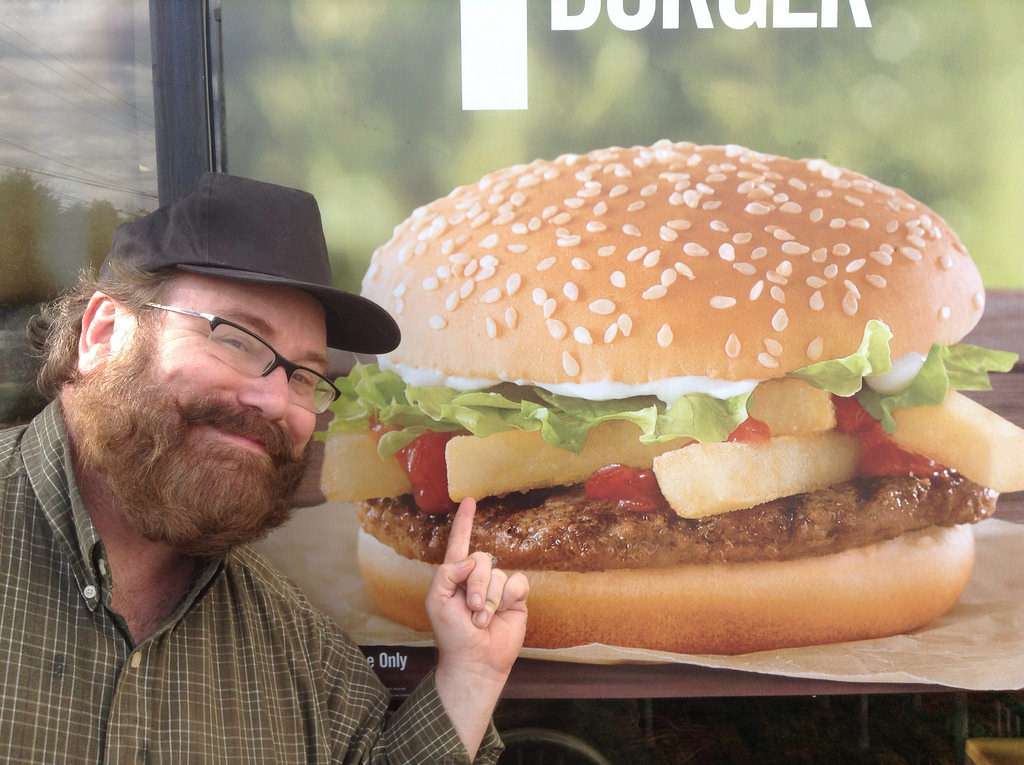The Left's Ridiculous Burger King Freakout
The Burger King move isn't really about "inversion" anyway. This is a merger.


Burger King plans to merge with Canuck coffee-and-doughnut chain Tim Hortons and base the company's headquarters in Canada, where it will enjoy the kind of reasonable corporate tax structure that Democrats continue to obstruct here in the United States. And the move has provoked a fresh round of moral panic, faux patriotism, and confusion.
It's doubtful, despite much wishful thinking, that there will be much of a real backlash. Nor should there be. Most obviously, the majority of fast-food customers are probably less inclined than the petitioners of MoveOn.org to mistake high tax rates for patriotism. This kind of distorted understanding of national loyalty may work in populist politics, but not so much in markets. Few reasonable humans will meditate on Burger King's corporate tax "inversion"—or even its Brazilian owners—as they wait for the frozen french fries to be dropped into the deep-fryer.
The four best-selling cars in America so far in 2014 are the Toyota Camry, Nissan Altima, Honda Accord, and Toyota Corolla. One of the best-selling cellphone brands is South Korean. And so on. Does a Whopper taste like a Whopper? That's all that matters. And it's all that should. Nothing really changes for the consumer.
Even among those who do pay attention, there will very likely be many who don't believe that the purpose of a business is to placate the Obama administration or generate more revenue for government. The executive's charge is to grow and sustain a healthy business, which this deal almost unquestionably does. Stockholders? According to TheStreet, the Brazilian equity firm that controls the company may make more in one day with the acquisition of Tim Hortons than it paid Goldman Sachs (and others) for Burger King four years ago. Sounds like a sweet deal.
Obviously, there are people out there who believe that "tax avoidance" is wrong in theory. President Barack Obama wouldn't be harping on the issue and offering punitive legislation if the topic didn't poll well somewhere. Judging from Twitter and comments sections, plenty of misinformed Americans are under the impression that Burger King will stop paying taxes altogether; "inversion" companies are subject to U.S. tax rates on profits earned in America. It's the kind of ignorance that allows crass demagogues like Sherrod Brown (Burger King has "abandoned the United States"!) to do their thing.
The media have done their part, as well, treating a perfectly legal corporate decision that's been practiced for decades as a form of perfidy. Take a recent hit piece by Bloomberg. It "investigates" an entirely legal action by congressmen who "are invested in deals that Obama and other Democrats say are wrong and unpatriotic." Who knows? Maybe House Speaker John Boehner and Rep. Dave Camp (who, incidentally, had plenty of time to push reform themselves) are guilty of pre-crime, but maybe they just think it's "wrong" and "unpatriotic" to drive businesses out of the United States with a corporate tax rate that's the highest in the civilized world. But hey, our president has proposed ex post facto legislation for crimes against "economic patriotism." Let's criminalize behavior we don't like retroactively.
With all that said, the Burger King move isn't really about "inversion" anyway. This is a merger. Tim Hortons has a $9.9 billion market cap and generated more revenue than Burger King last year, so it seems implausible that the deal was made for reasons of tax sedition alone. When you merge with a company from another country, one that helps diversify your reach worldwide, it seems like a basic fiduciary responsibility to place your headquarters in the spot that offers you the best business climate. And though Burger King's move won't save much in the immediate future, it seems that choosing Canada makes sense.
And that's probably what's driving a lot of the overwrought reaction to this merger. The consequences of high corporate taxation could not be more apparent. If Burger King is willing to "leave" the country, it won't matter how much hyperbole Democrats throw around; other established American brands will do the same. It's certainly possible that the left will generate enough of a racket to persuade the fast-food giant to surrender on inversion. But as we've seen, most companies can't be shamed out of making the right decision.


Show Comments (77)